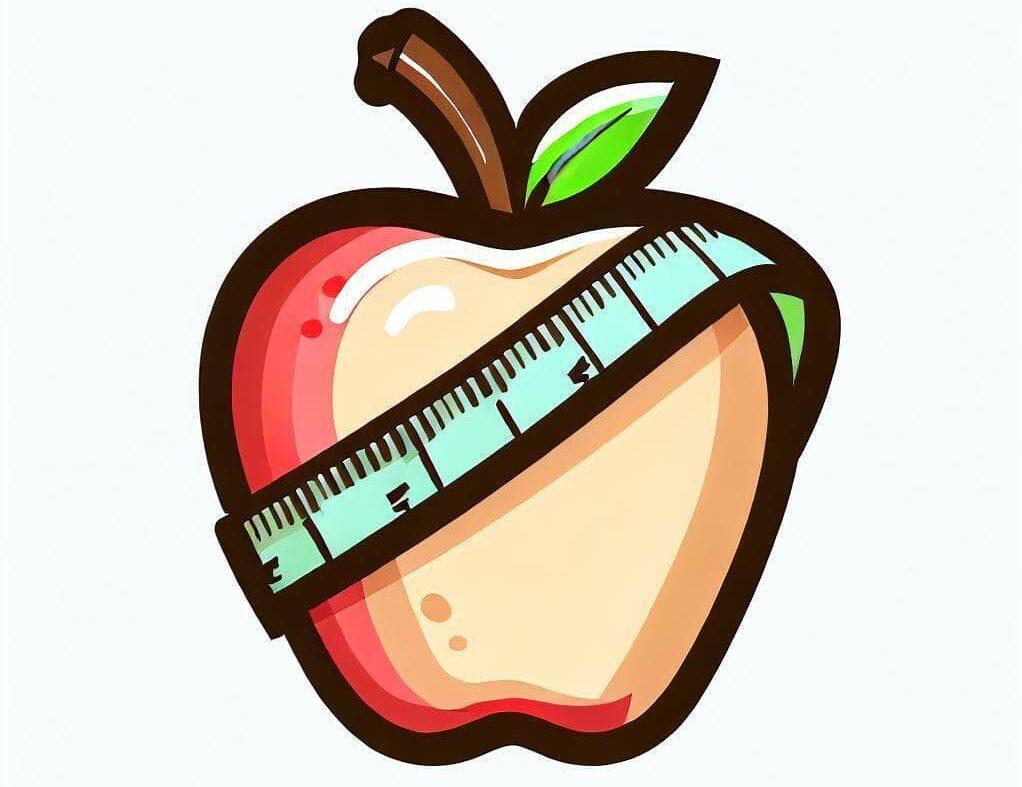Why Am I Craving Bananas? 10 Reasons Why
This post may contain affiliate links which means I may receive a commission for purchases made through links at no extra cost to you. See my disclosure policy for more information.
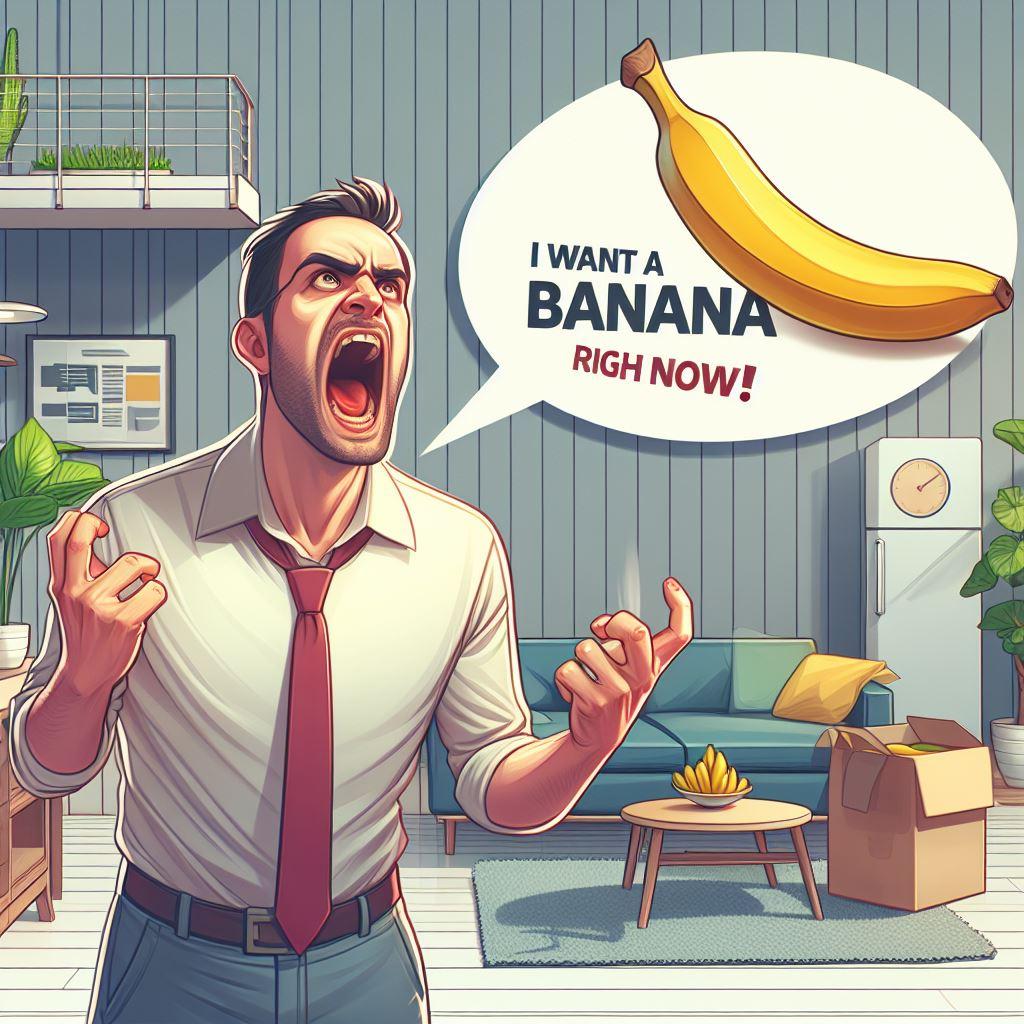
The reason you might be craving bananas could be because you’re hungry, you like how they taste, or you’re in need of an energy boost.
It might be one of these reasons, or it could be many other reasons.
The thing about craving a specific food is that it’s hard to pinpoint exactly why, as cravings can arise for various reasons or sometimes for no apparent reason at all.
But to give you some clarity, in this article, I’m going to explore every possible reason why you might be craving bananas. So stick with me till the end!
1. You are just hungry
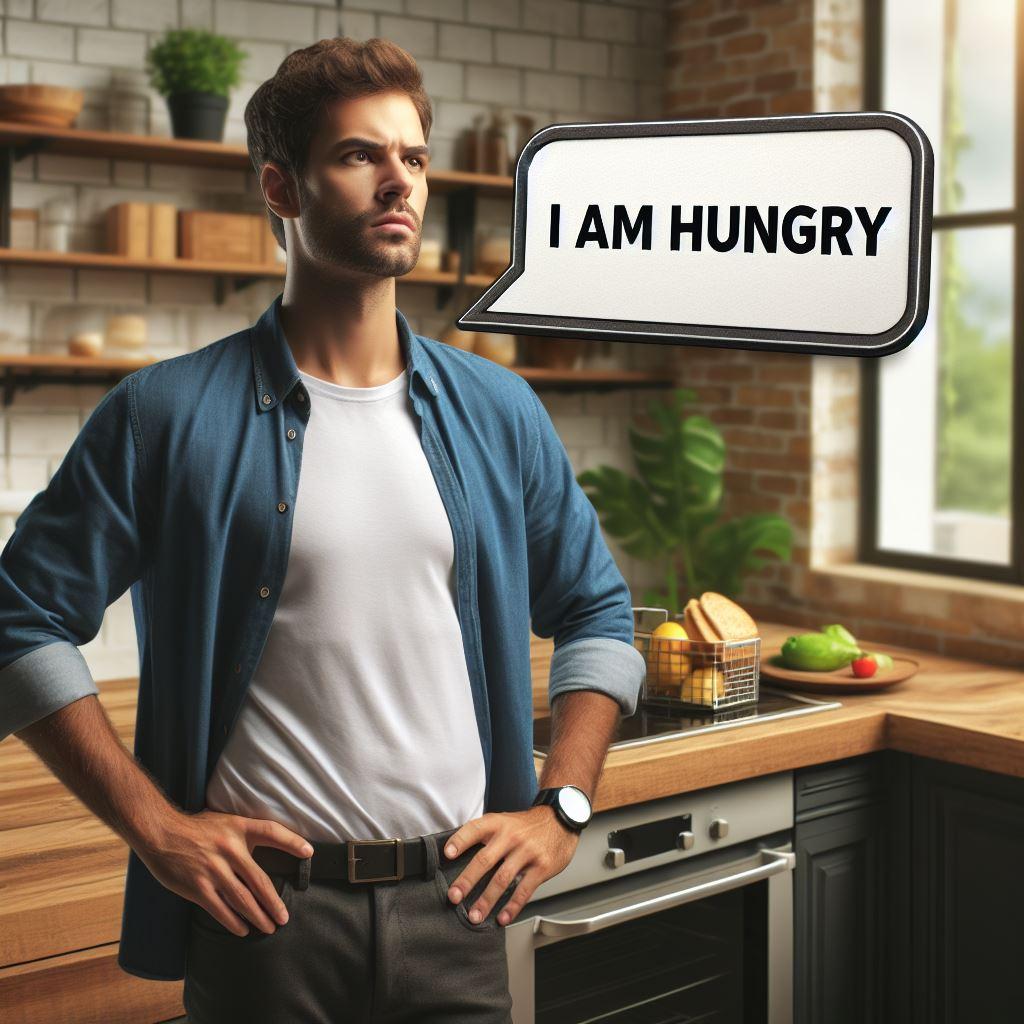
If you’re suddenly craving bananas and you haven’t eaten anything for a while, it’s probably because you’re hungry.
When your stomach is empty and your blood sugar levels begin to fall, your body starts to produce ghrelin, also known as “the hunger hormone.”
This hormone signals the hypothalamus in your brain that it’s time to eat, initiating a series of reactions that increase your appetite and prepare your digestive system for food.
After you’ve eaten enough to slightly stretch your stomach, the production of ghrelin decreases, and you start to feel full and satisfied for a period.
Bananas are a go-to snack for many because they’re easy to eat without needing to cook or order from a restaurant, which takes time. Your brain may subconsciously know this.
So, if you have bananas in your kitchen, you’re likely to quickly eat one.
Plus, if money is tight, bananas are quite affordable. All these reasons might be why you crave bananas when you’re hungry.
2. You are low on energy
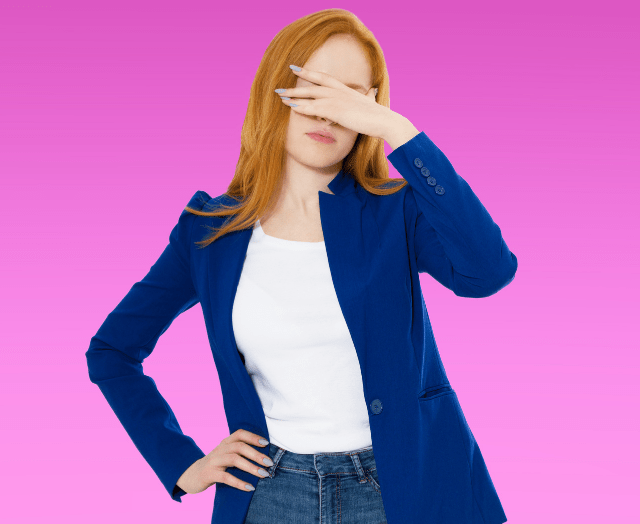
If you’re feeling a bit low on energy or maybe your blood sugar is dropping, your body might be looking for something to perk you up. And what’s a better natural booster than a banana?
The natural sugars in bananas—fructose, glucose, and sucrose can provide that quick energy your body is seeking.
A medium-sized banana, weighing about 118 grams, packs around 105 calories and 26.5 grams of carbs. That’s pretty impressive for getting an energy lift.
It’s also why many people who work out like to eat bananas before and after their sessions. Bananas have these great properties that make them perfect for a pre-workout and post-workout snack.
So, if your banana cravings are linked to energy requirements grabbing a banana could be the right signal your body is sending you.
3. For its sweet taste

Your craving for bananas may be because they’re sweet. They taste really good due to their sweetness, and you might have started to like them a lot, maybe without even fully realizing it.
We all like to have something sweet every once in a while.
For some people, this might mean eating chocolate, for others, it could be drinking fruit juices, and for some, it might mean having a sugar-sweetened soda like Coke or Pepsi with every meal.
Everyone has their own level of sweetness they prefer. So, in your case, bananas might just be hitting that sweet spot for you.
4. Out of a habit
Another reason could be that you’re used to eating bananas often, maybe even without realizing it.
This could be part of your routine, like having one in the morning for breakfast, grabbing one as a snack when you’re at work, or eating a banana after dinner as a sweet treat.
The point is, that bananas may be a regular part of your diet more than you’re aware. And when you go a few days without eating one, your body starts to crave it.
This might happen especially when you’re away from home, like on vacation or a work trip, where your usual routine—which includes eating bananas—isn’t easy to follow.
So, your craving for bananas could really be about how often you eat them without even thinking about it.
5. Bananas could be your comfort food
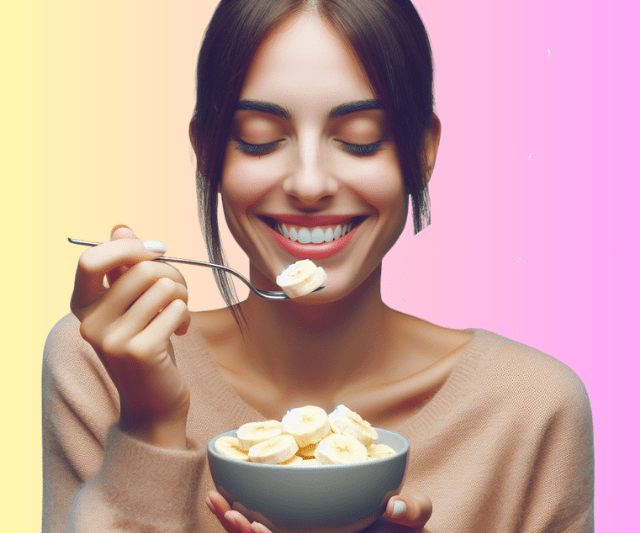
Sometimes, cravings are more about what your mind wants than what your body needs. For example, bananas might be a comfort food for you, tied to happy memories.
Maybe you’re feeling a bit down, and your mind is looking for something sweet and full of carbs, which can help lift your mood for a bit. This is known as emotional eating.
The hormone that is responsible for making you feel happy is called serotonin.
Research shows that not having enough serotonin in your brain might potentially affect your mood.
When you’re craving foods rich in carbs like bananas, it’s often because these foods help increase serotonin production.
So, reaching for foods high in carbs can be a way of trying to make yourself feel better.
Research supports this idea: Eating a meal high in carbohydrates tends to increase serotonin levels, while a meal high in fat and protein might decrease them.
So, it might be that you’re feeling low, and your body is craving something sweet and high in carbs as a comfort food to help you feel better.
6. You may be on a restrictive diet
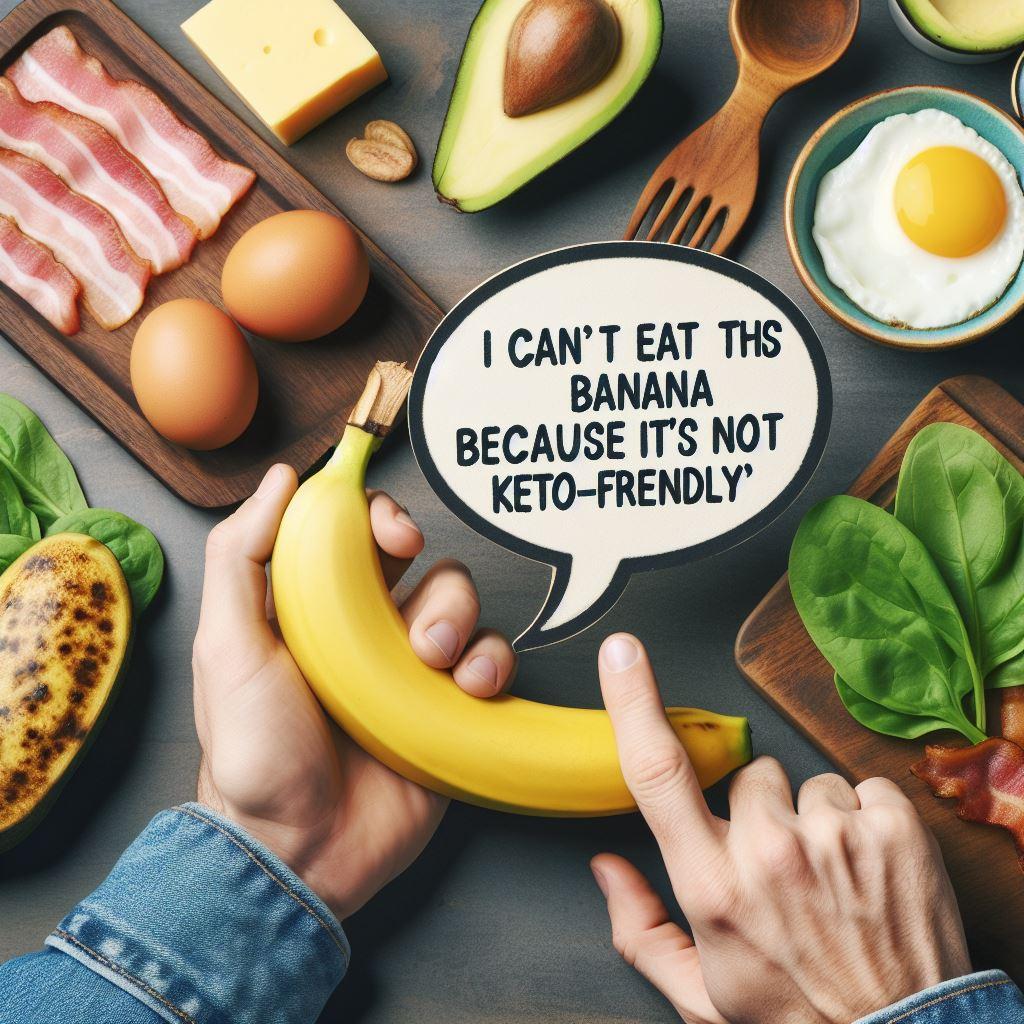
If you’re on a diet that only lets you eat certain foods and cuts out others, you might end up really wanting the foods you’re not supposed to have. Take bananas, for instance. They’re often restricted or not allowed in these diets:
Keto diet: The ketogenic diet focuses on high fat and very low carbs to get your body into ketosis, a state where it burns fat instead of carbs for energy. Bananas, being high in sugars and carbs, are usually not allowed, especially in the early stages where you’re only allowed about 20-50 grams of carbs a day.
Low-carb diets: These diets, which are similar to but less strict than the keto diet, aim to reduce carbohydrate intake. This helps with weight loss or managing certain health conditions. Because bananas have natural sugars, they might be restricted to keep their carb intake low.
FODMAP diet: Aimed at reducing or eliminating foods that can cause digestive issues for people with irritable bowel syndrome (IBS) or similar conditions, this diet looks at certain types of carbs that are hard to digest. Unripe bananas are low in these FODMAPs, but ripe bananas are high and should be limited or avoided.
So if you are following any of these diets where you have to restrict your banana intake, it is likely that your mind starts craving them even more.
This is a psychological reason that involves the paradoxical effect of thought suppression. When you try to avoid thinking about something, such as a certain food, you may end up thinking about it more and craving it more.
7. You may be experiencing hormonal changes
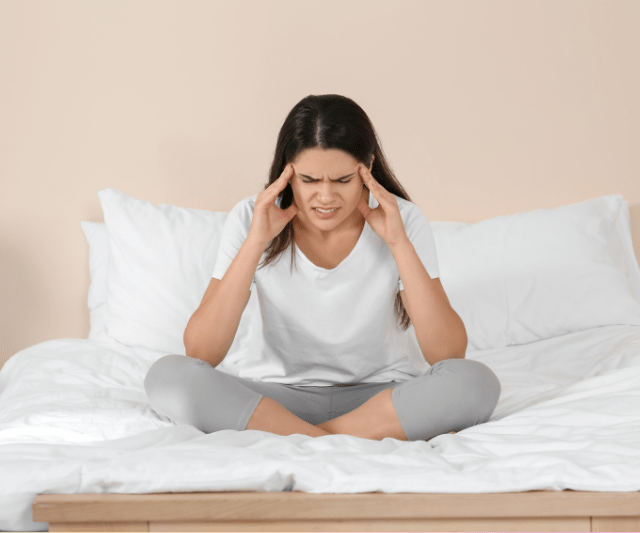
Hormonal changes can significantly influence your cravings for certain foods, and this is particularly noticeable in women.
For instance, during the menstrual cycle, the hormones progesterone and estrogen fluctuate, which can impact your appetite and mood.
Progesterone tends to increase your hunger and cravings for high-calorie foods, while estrogen can decrease your serotonin levels, making you crave carbohydrates and sweets.
These cravings can also occur during pregnancy when hormonal changes dramatically affect your preferences for taste and smell.
In men, imbalances in hormones related to hunger and fullness can also lead to food cravings.
These hormones include ghrelin, which stimulates your appetite, and leptin, which signals when you are full. When these hormones are not balanced, you might feel hungry even if you have eaten enough, or you might crave foods that are high in fat or sugar.
Factors such as stress, lack of sleep, exercise, and aging can influence these hormonal imbalances.
8. You are Bored
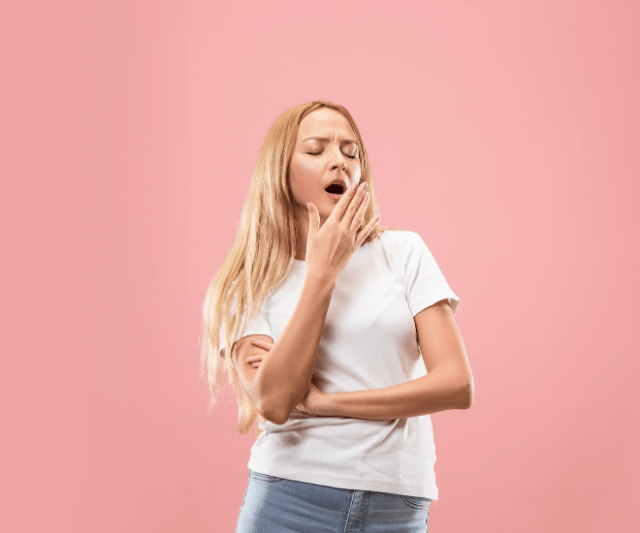
Craving bananas when bored is more common than you might think. It’s where eating turns into a way to break the boredom and wake up your senses when you’re just sitting around.
When you’re bored, your brain is on the lookout for something exciting, and eating is an easy and quick way to get engaged.
Just the act of peeling a banana, enjoying its sweet taste, and soft feel can give you a short break and a bit of a sensory experience that helps push away those bored feelings.
Also, since bananas are usually easy to get and you don’t need to prepare them, they become a favorite choice for a fast and satisfying way to keep yourself busy during those dull moments.
So, this craving isn’t really about being hungry or needing food for nutrition; it’s more about wanting a little change in what you’re doing and finding a quick bit of fun and activity.
9. You have a memory attached to Bananas
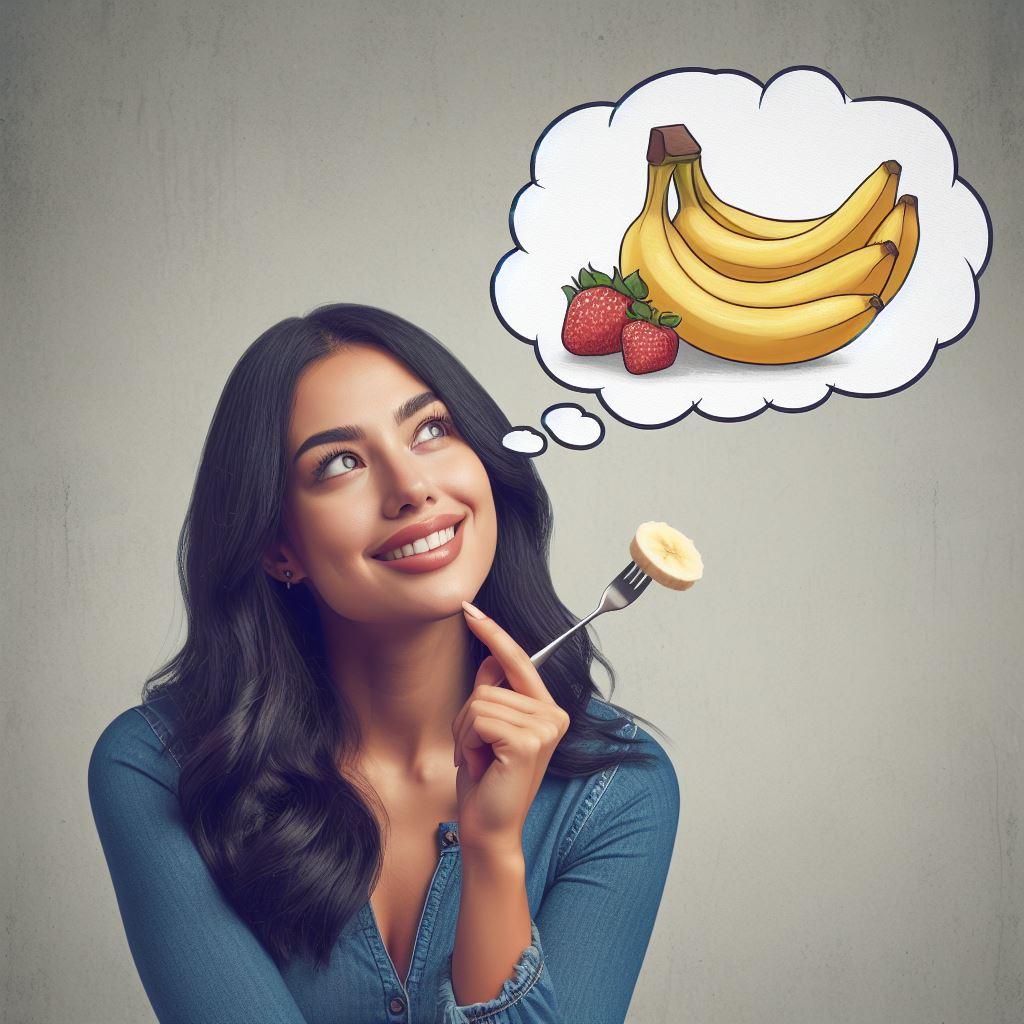
Sometimes, the foods we crave are tied to our memories or feelings from the past. They remind us of happy, comforting, or important times.
For example, bananas might not just be fruit to someone; they could remind them of good times they had.
This happens because our brains link certain smells, tastes, or the act of eating certain foods like bananas with memories from before.
Like, if you always had bananas during fun family times or when times were tough and bananas were all you could afford, you might start craving bananas when you miss those days or need some comfort.
These cravings are about more than just being hungry; they’re about missing the feelings and safety those memories bring.
Understanding this can help you see that sometimes we crave foods not just because we’re hungry, but because we’re longing for the emotions and comfort those foods remind us of.
10. Your body is low on potassium (least likely reason)
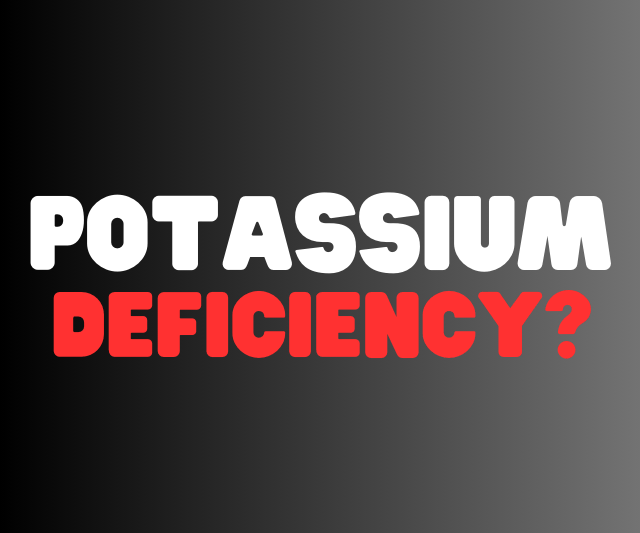
This common theory that I’ve heard and read quite a bit goes like this: if you’re craving bananas, it might be because your body is low on potassium.
Just so you know, potassium is a mineral and an electrolyte that’s important for a lot of things in your body, like keeping your fluids balanced, helping your nerves and muscles work right, keeping your heart beating the way it should, and managing your blood pressure.
Since bananas are pretty rich in potassium, packing about 422 mg in a medium-sized one, the theory suggests your body craves this specific food to bump its potassium levels back up to where they should be.
The problem with this theory
Now, here’s where I have a problem with this theory. First off, it’s highly unlikely your body knows which food contains what nutrients.
It’s not like there’s a nutritionist tucked away inside you with full access to the USDA’s database of food nutrients.
Even if your body could somehow detect during digestion that a banana is high in potassium, there are plenty of other foods that are also rich in potassium.
Just craving one particular food for its nutrients doesn’t really add up.
And second, there’s no scientific evidence to back up this claim, at least not yet.
In fact, evidence suggests the opposite.
For instance, during pregnancy—a time when the body needs more energy and certain nutrients than usual—the types of foods craved don’t really change from what’s normally craved.
This is why I think this reason for craving specific foods, like bananas for potassium, is the least likely. There’s no evidence, plus it doesn’t make sense how the body would know which food has what nutrients in it.
What to do about banana cravings?
If you’re really craving a banana, it’s totally okay to give in and have one. There’s nothing wrong with eating bananas as long as you keep it in moderation.
When I say moderation, I mean having about 1-2 bananas a day is fine for the average person.
However, if you’re someone who is very active and works out a lot, what you need and when you eat might be different from someone who doesn’t exercise much.
Avoid if the craving is emotional
The reason I mentioned avoiding bananas if your craving comes from emotions is because this sets up a pattern where you might start craving bananas every time you feel a certain way, like stressed, sad, or depressed.
It’s important to have a healthy relationship with food, recognizing that foods like bananas provide us with nutrients and health benefits.
Bananas, being high in carbs and calories, should primarily be eaten for their nutrients, whether you’re hungry or need an energy boost for a workout, and of course, for their sweet taste.
But the focus should be on the nutrients and understanding why you’re eating it. Emotional eating, once it becomes a habit, can be hard to break.
This is especially true if you’re trying to lose weight and also struggle with emotional eating.
It could lead to eating high-calorie and high-carb foods whenever you’re feeling emotional, which is counterproductive when you need to eat less to lose weight.
This cycle can make you feel guilty and hinder your progress towards your weight loss goals.
So, if your craving for bananas is driven by emotional needs, like stress or boredom, it’s better to identify healthier coping mechanisms.
Consider activities like walking, reading, or meditating as alternatives to manage these feelings.
Conclusion
Here are 10 possible reasons why you might be craving bananas. Some reasons could be more common than others, and a few might be quite rare.
However, if you find yourself with a strong craving for a banana, the simplest solution is to go ahead and eat one.
But, if you notice that this craving for bananas keeps coming back, especially during specific emotional states, it might be something to pay attention to.
This recurring craving could lead you towards emotional eating, which, in the long term, isn’t beneficial for your health.
FAQ
Why do I want to eat bananas?
There are several reasons you might choose to eat bananas. It could be their sweet taste, which satisfies sugar cravings without the need for unhealthy, sugary snacks. Perhaps you’re looking for an energy boost, feeling hungry, or sometimes, you might just crave a banana without any particular reason at all.
What happens if you eat a lot of bananas?
Eating too many bananas can lead to an excess intake of certain nutrients, like potassium, which in extreme cases can affect heart health due to potassium’s role in heartbeat regulation. Moreover, consuming bananas in large quantities might lead to weight gain due to their calorie content.
What happens when you eat bananas regularly?
Regular banana consumption can contribute to a balanced diet, providing essential nutrients such as potassium, vitamin C, and dietary fiber. This can support heart health, aid digestion, and help maintain healthy blood pressure levels.
Why do I feel better after eating a banana?
Eating a banana can make you feel better due to its nutrient content, including potassium and magnesium, which can help regulate bodily functions and improve mood. Bananas also contain natural sugars, providing a quick energy boost.
Why does eating a banana make me feel better?
The feeling of well-being after eating a banana comes from its composition of essential nutrients, natural sugars for energy, and tryptophan, which is converted into serotonin in the brain, improving your mood and overall sense of happiness.
How does eating bananas affect your body?
Eating bananas affects your body by providing vital nutrients that support heart health, regulate digestion, relieve muscle cramps, and maintain healthy blood sugar levels. The fiber in bananas can also promote satiety and help with weight management.
Why would someone eat a lot of bananas?
Someone might eat a lot of bananas to satisfy food cravings with a healthier option, to fulfill a banana craving specifically, or to increase their intake of dietary fiber and essential nutrients like potassium and vitamin B6, which are important for overall health and well-being.
This post may contain affiliate links which means I may receive a commission for purchases made through links at no extra cost to you. See my disclosure policy for more information.
Rahul is a professional nutritionist certified by the International Sports Sciences Association (ISSA) and a personal trainer certified through the American Council of Exercise (ACE). He has a special interest in the science of nutrition and how it can impact the body.
